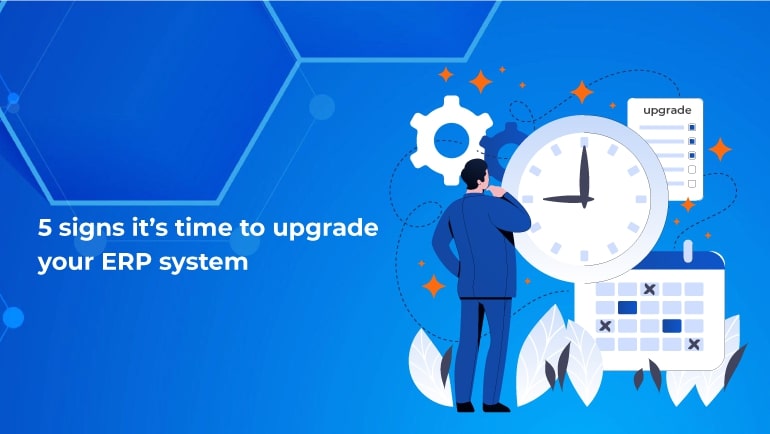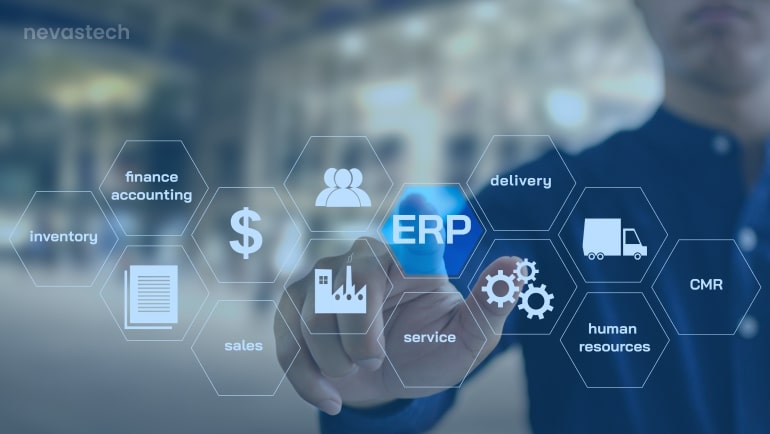5 signs it’s time to upgrade your ERP system
We possess extensive experience in engaging with businesses seeking to modernize their ERP or business applications. Furthermore, we have significant experience assisting organizations undergoing transitions to new ERP Software. Frequently, these entities pose a common query: Is it necessary to implement a new ERP system? To address this inquiry, our approach consistently involves identifying recurring indicators.
In this post, we will explore five key signs that indicate the need for implementing a new ERP solution.
1. Reporting
Traditional reporting processes often entail time-consuming data extraction, manipulation, and interpretation. This inconvenience arises from using multiple applications for distinct functions, resulting in siloed information. Modern ERP solutions combat this issue by offering real-time dashboards with business Key Performance Indicators (KPIs), providing immediate insights and enabling proactive decision-making.
2. Increasing IT Expenses
Many businesses grapple with ERP solutions that become inadequate as their operations evolve. Attempts to modify or develop on top of existing applications can lead to escalating costs and constant maintenance. Choosing the right ERP solution tailored to industry needs ensures flexibility and reduces the Total Cost of Ownership (TCO) over the long term.
3. Compliance
Outdated or disparate solutions pose significant compliance risks, especially in regulated industries. Security vulnerabilities may expose sensitive data to potential breaches, jeopardizing the ability to trade. Modern ERP solutions come equipped with robust information security standards and industry-specific functionalities, making compliance adherence more straightforward.
4. Spreadsheets
As businesses outgrow their current ERP system, reliance on spreadsheets increases. This shift can lead to inaccurate reporting, version control challenges, and heightened human error. Most modern ERP solutions allow seamless integration with spreadsheets, ensuring data accuracy, freshness, and control.
5. Productivity
Inadequate IT infrastructure often hampers productivity, especially when remote or mobile access is limited. Cloud ERP solutions address this concern by enabling remote work, facilitating on-the-go actions, and promoting overall efficiency. Additionally, innovations in automation streamline manual tasks, allowing organizations to maintain optimal productivity while scaling operations.
Conclusion
Understanding and addressing these challenges with a modern ERP solution can significantly enhance an organization’s agility, compliance, and overall operational efficiency. If you require assistance in finding the right ERP solution for your specific needs, speak to one of our advisor today.




